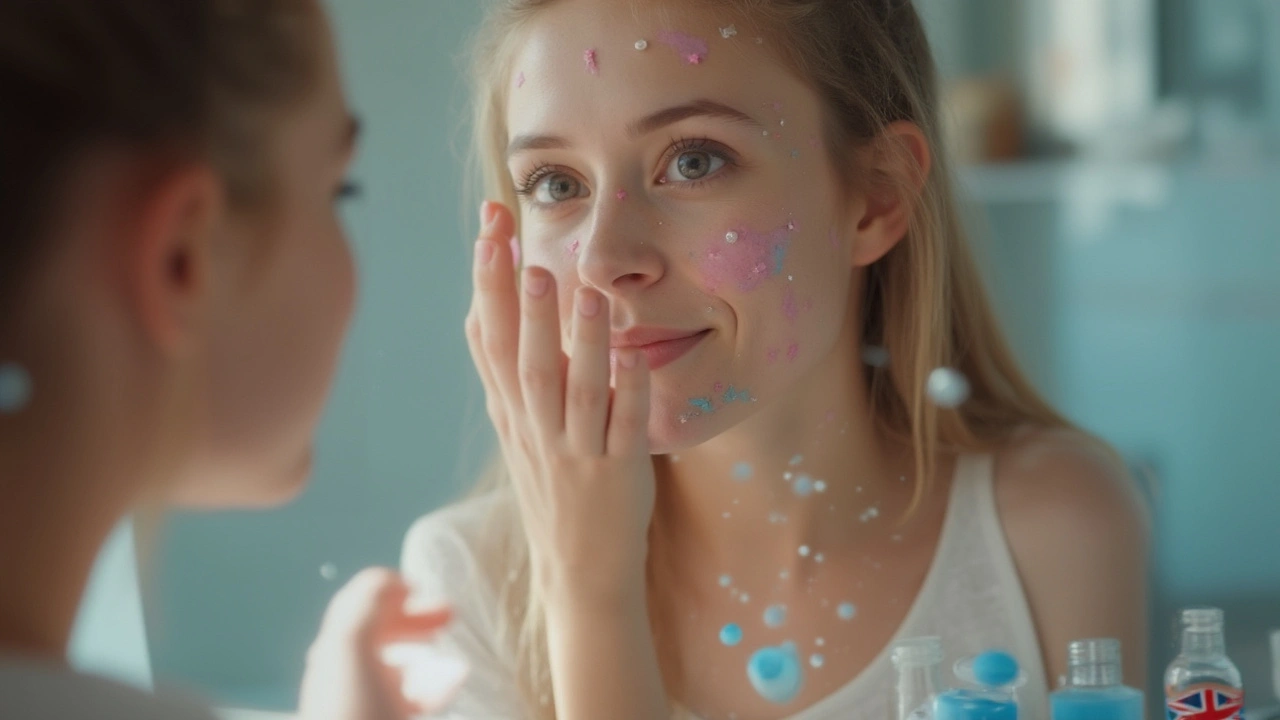Acne treatment: practical steps that actually help
Acne treatment can feel confusing, but you don't need a closet full of products to make real progress. Start simple: clean gently, treat the spot, moisturize, and protect with sunscreen.
Use a gentle cleanser twice a day — no scrubbing or harsh soaps. Benzoyl peroxide kills bacteria fast; use a 2.5-5% gel at night on active pimples. For clogged pores, a topical retinoid like adapalene or tretinoin helps skin turnover and prevents new plugs. If redness and swelling bother you, add a short course of topical antibiotic or azelaic acid to calm inflammation. Patch test a new product on your jawline for three days before applying it to your whole face.
Don't overdo it. Using too many actives at once causes irritation and worse breakouts. Alternate benzoyl peroxide and retinoids (use peroxide in the morning and retinoid at night), or use them on different nights. Always follow product instructions and start slowly — every other night is fine until your skin adapts.
For hormonal acne, especially along the jawline and chin, birth control pills or spironolactone can help. These need a doctor's prescription and follow up. If you notice severe cysts, scarring, or wide areas of soreness, see a dermatologist quickly — oral isotretinoin might be the best fix but it requires blood tests and strict monitoring.
Diet and habits matter. Cutting back on high glycemic foods and dairy sometimes lowers flare ups. Sleep more, manage stress, and avoid picking or popping pimples — that makes scars and infections more likely. Use non-comedogenic makeup and wash pillowcases every few days.
When to seek help
See a doctor if acne impacts your mood, leaves painful cysts, or won't respond after three months of consistent OTC care. A dermatologist can offer treatments like chemical peels, in-office steroid injections for big nodules, and prescription meds. Ask about side effects, timelines, and follow up visits before starting any new drug.
Quick routine you can try
Mornings: gentle wash, thin layer of benzoyl peroxide on problem zones, light moisturizer, sunscreen. Nights: cleanser, topical retinoid three nights a week, moisturizer. If irritation shows, back off frequency and use moisturizer as needed. Keep routines consistent for at least 8 to 12 weeks to see real changes.
Products to look for: salicylic acid for exfoliation, niacinamide for redness control, ceramides and glycerin for hydration. Avoid alcohol-heavy toners and strong physical scrubs. If you use spot treatments, apply them only on active lesions and not over your entire face.
Over the counter oral options like zinc supplements and topical sulfur can help some people, but don't expect overnight miracles. Hormonal treatments take months to work. If a product makes you break out more, stop it and give your skin a break for a week. Keep notes or photos so you can track progress and show your doctor what helped or hurt.
Short on budget? Focus on one proven active and a good moisturizer. Cheap benzoyl peroxide, adapalene, and sunscreen beat dozens of gimmicks. Consistency beats hype every time.
Keep going.
Get the lowdown on benzoyl peroxide: how it demolishes acne, tips for using it safely, side effects, and pro tricks for awesome skin with this must-read guide.
10 Jan
2025
Tretiva, containing the active ingredient Isotretinoin, is widely used for treating severe acne that hasn't responded to other treatments. This article uncovers various deals on Tretiva and delves into its medical benefits, possible side effects, and drug interactions. It also provides guidance on common dosages and recommendations. Aimed at helping acne sufferers make informed choices, it balances expert advice with practical tips for safe usage.
Uruguay anticipates the arrival of a vital acne medication next week, addressing a supply gap caused by production issues. The healthcare sector is on alert, ensuring the batch meets standards before it reaches those in need.


